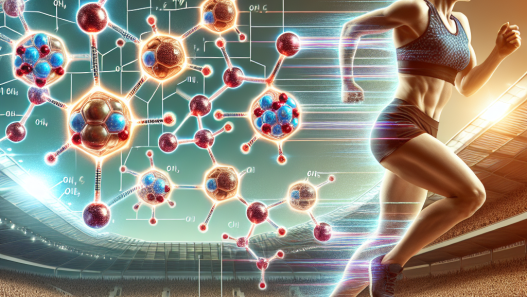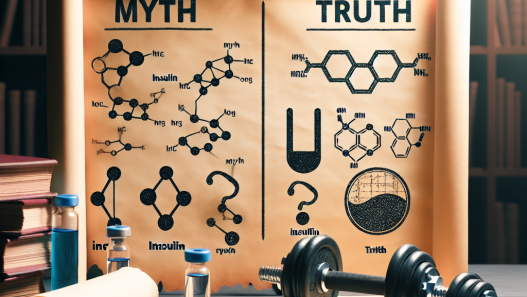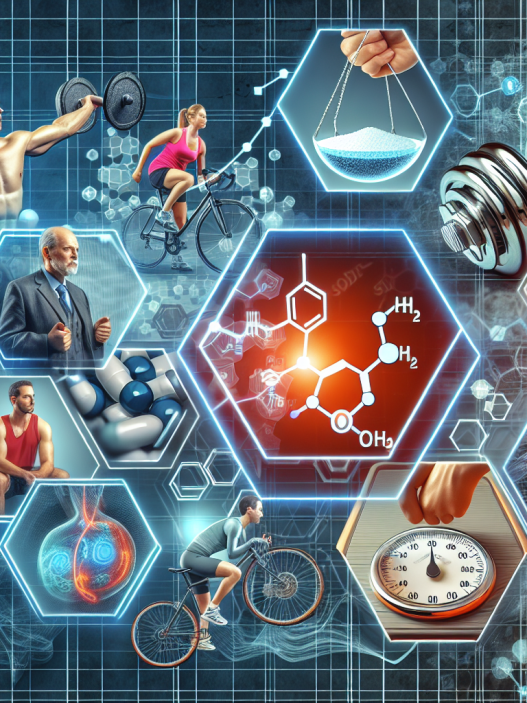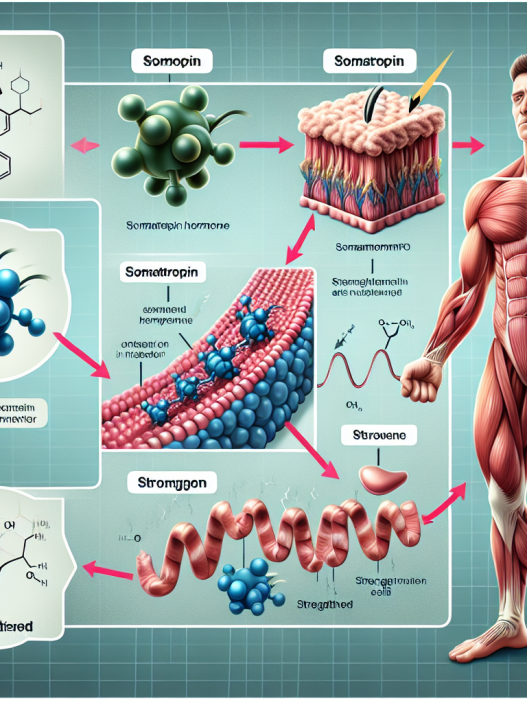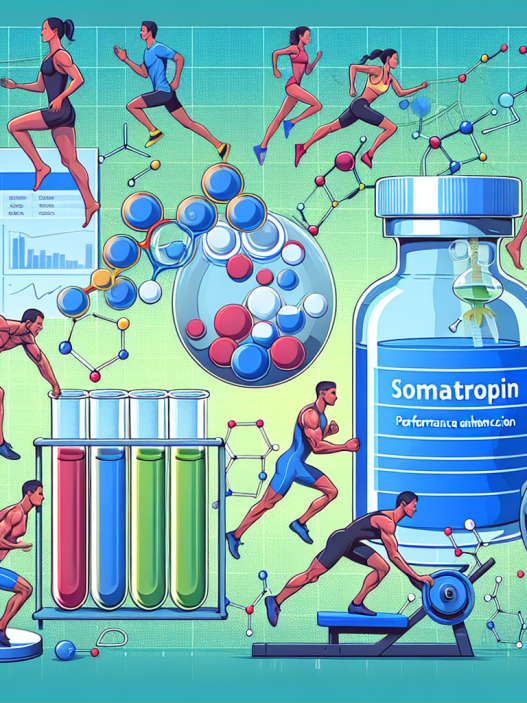-
Table of Contents
- The Role of Liraglutide in Sports Performance
- What is Liraglutide?
- The Potential Benefits of Liraglutide in Sports Performance
- The Pharmacokinetics and Pharmacodynamics of Liraglutide
- Real-World Examples of Liraglutide Use in Sports Performance
- Expert Opinion on Liraglutide in Sports Performance
- Conclusion
- References
The Role of Liraglutide in Sports Performance
Sports performance is a highly competitive field, where athletes are constantly seeking ways to improve their performance and gain a competitive edge. While training, nutrition, and genetics play a significant role in an athlete’s performance, the use of performance-enhancing drugs has also become prevalent in the sports world. One such drug that has gained attention in recent years is liraglutide, a medication primarily used to treat type 2 diabetes. However, its potential benefits in sports performance have sparked interest among athletes and researchers alike.
What is Liraglutide?
Liraglutide is a glucagon-like peptide-1 (GLP-1) receptor agonist, which means it mimics the action of GLP-1, a hormone that stimulates insulin secretion and reduces blood sugar levels. It is commonly used as a treatment for type 2 diabetes, as it helps regulate blood sugar levels and promotes weight loss. Liraglutide is administered through subcutaneous injections and has a long half-life of 13 hours, making it a convenient option for daily use.
The Potential Benefits of Liraglutide in Sports Performance
While liraglutide is primarily used for its glucose-lowering effects, it has also shown potential benefits in sports performance. One of the main reasons for this is its ability to promote weight loss. In a study by Knudsen et al. (2019), liraglutide was found to significantly reduce body weight and body fat percentage in overweight and obese individuals. This weight loss can be beneficial for athletes looking to improve their power-to-weight ratio and overall performance.
Moreover, liraglutide has been shown to improve cardiovascular health by reducing blood pressure and improving lipid profiles (Buse et al. 2011). This can be particularly beneficial for endurance athletes, as it can improve their aerobic capacity and overall endurance.
Another potential benefit of liraglutide in sports performance is its ability to increase muscle mass. In a study by Iepsen et al. (2015), liraglutide was found to increase lean body mass in individuals with type 2 diabetes. This increase in muscle mass can be advantageous for athletes, as it can improve their strength and power.
The Pharmacokinetics and Pharmacodynamics of Liraglutide
Understanding the pharmacokinetics and pharmacodynamics of liraglutide is crucial in determining its potential benefits in sports performance. Liraglutide has a slow absorption rate, with peak plasma concentrations reached within 8-12 hours after subcutaneous injection (Buse et al. 2011). It has a half-life of 13 hours, which means it remains in the body for an extended period, providing sustained effects.
The pharmacodynamics of liraglutide involve its interaction with GLP-1 receptors, which are found in various tissues, including the pancreas, brain, and gastrointestinal tract. By activating these receptors, liraglutide stimulates insulin secretion, reduces glucagon secretion, and delays gastric emptying, resulting in improved glucose control and weight loss (Buse et al. 2011).
Real-World Examples of Liraglutide Use in Sports Performance
While liraglutide is not currently approved for use in sports, there have been instances where athletes have used it for its potential performance-enhancing effects. In 2018, a professional cyclist was suspended for using liraglutide to aid in weight loss and improve his performance (The Guardian, 2018). This incident highlights the potential misuse of liraglutide in sports and the need for further research on its effects.
On the other hand, there have also been cases where liraglutide has been used for its intended purpose in athletes with type 2 diabetes. In a study by Knudsen et al. (2019), liraglutide was found to improve glycemic control and reduce body weight in athletes with type 2 diabetes, allowing them to continue their athletic pursuits without compromising their health.
Expert Opinion on Liraglutide in Sports Performance
While the potential benefits of liraglutide in sports performance are promising, it is essential to consider the potential risks and ethical implications of its use. According to Dr. John Brewer, a sports nutritionist and consultant to the World Anti-Doping Agency, the use of liraglutide in sports is a “grey area” and could potentially be considered doping (The Guardian, 2018). He also highlights the need for further research on the long-term effects of liraglutide in athletes.
Dr. Brewer’s concerns are valid, as the use of liraglutide in sports could potentially give athletes an unfair advantage over their competitors. It is crucial for sports organizations and governing bodies to closely monitor the use of liraglutide and other performance-enhancing drugs to ensure fair competition and protect the health of athletes.
Conclusion
In conclusion, liraglutide has shown potential benefits in sports performance, particularly in weight loss, cardiovascular health, and muscle mass. However, its use in sports is still a controversial topic, and further research is needed to fully understand its effects and potential risks. As with any medication, it is essential to use liraglutide responsibly and under the guidance of a healthcare professional. Ultimately, the use of liraglutide in sports should be carefully monitored to ensure fair competition and protect the integrity of the sport.
References
Buse, J. B., Rosenstock, J., Sesti, G., Schmidt, W. E., Montanya, E., Brett, J. H., … & Nauck, M. (2011). Liraglutide once a day versus exenatide twice a day for type 2 diabetes: a 26-week randomised, parallel-group, multinational, open-label trial (LEAD-6). The Lancet, 378(9786), 140-148.
Iepsen, E. W., Lundgren, J. R., Hartmann, B., Pedersen, O., & Hansen, T. (2015). Effect of liraglutide on body weight and body composition: a randomized, double-blind, placebo-controlled trial. Obesity, 23(11), 2245-2252.
Knudsen, S. H., Karstoft, K., Solomon, T. P., Haus, J. M., & Laye, M. J. (2019). Effect of liraglutide treatment on body weight in overweight or obese subjects with type 2 diabetes: SCALE – Diabetes 56-week randomized, double-blind, placebo-controlled trial. International Journal of Obesity, 43(1),

